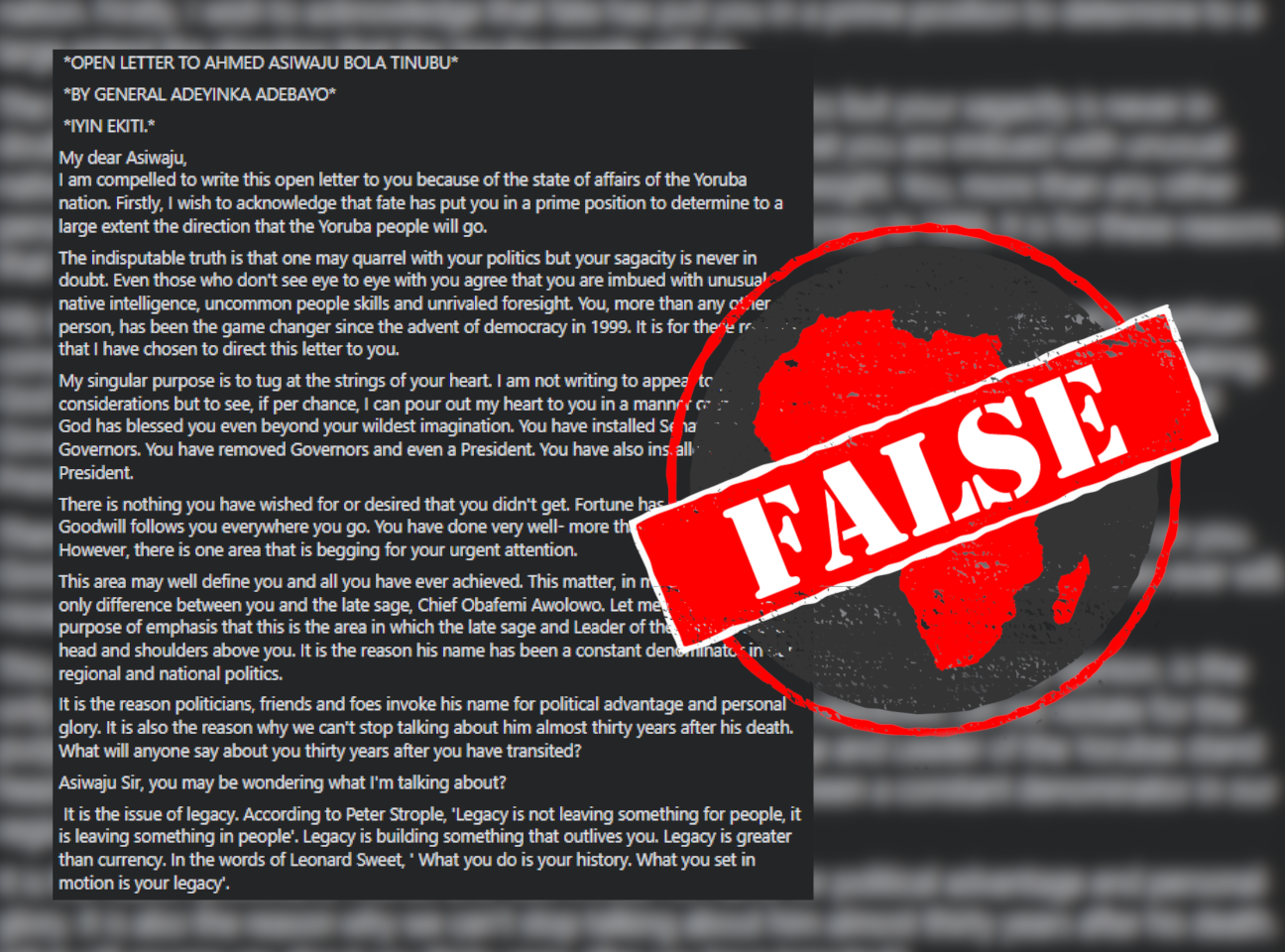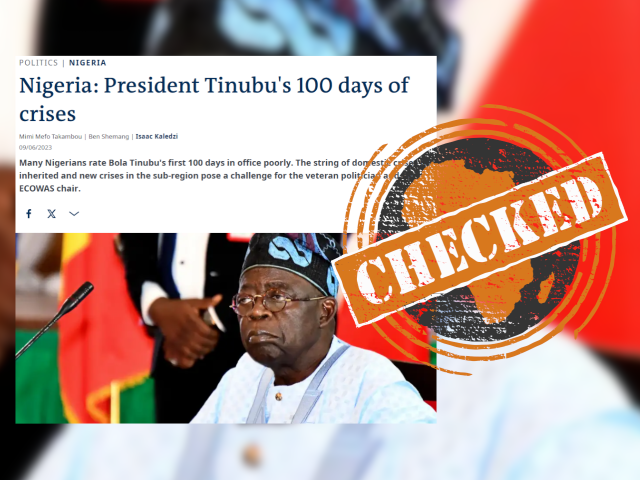IN SHORT: An open letter addressed to Bola Tinubu is doing the rounds. But the alleged author died in 2017, so he couldn't have written it in 2023.
A post shared on Facebook claims that Adeyinka Adebayo, the army general who served as the military governor of Nigeria’s western region between 1966 and 1971, has written an open letter to president-elect Bola Tinubu.
Tinubu was declared the winner of the February 2023 presidential election on 1 March. He ran on the ticket of the governing All Progressives Congress (APC).
A Facebook search shows that posts about the open letter date back to November 2016. The letter can be read here, here, here, here, here and here.
The open letter complains about the state of the “Yoruba nation”, a large ethnic group in southwest Nigeria, and claims that there are no Yoruba stakeholders in the manufacturing industry.
“If truth must be told, the Yoruba nation has fared very badly since the advent of our new democracy. And this is not about holding power at the centre,” the letter reads, in part.
The letter claims that the internally generated revenue of Lagos state, Nigeria’s commercial capital, would fall by 60% if Igbo people stopped paying taxes. It also urges Tinubu to make it his legacy to build the future of the Yoruba-dominated southwest region.
The Igbo, Yoruba and Hausa are the three largest ethnic groups in Nigeria.
But did the former military governor write this letter?

No, Adebayo died in 2017
Local media announced Adebayo’s death at the age of 89 in March 2017.
So he couldn't have written a letter in 2023.
We then checked to confirm that the letter had been written by Adebayo before his death. This led us to a local news platform’s retraction for attributing the letter to the army general in June 2016.
We could find no evidence that Adebayo wrote the letter.
Republish our content for free
For publishers: what to do if your post is rated false
A fact-checker has rated your Facebook or Instagram post as “false”, “altered”, “partly false” or “missing context”. This could have serious consequences. What do you do?
Click on our guide for the steps you should follow.
Publishers guideAfrica Check teams up with Facebook
Africa Check is a partner in Meta's third-party fact-checking programme to help stop the spread of false information on social media.
The content we rate as “false” will be downgraded on Facebook and Instagram. This means fewer people will see it.
You can also help identify false information on Facebook. This guide explains how.




Add new comment